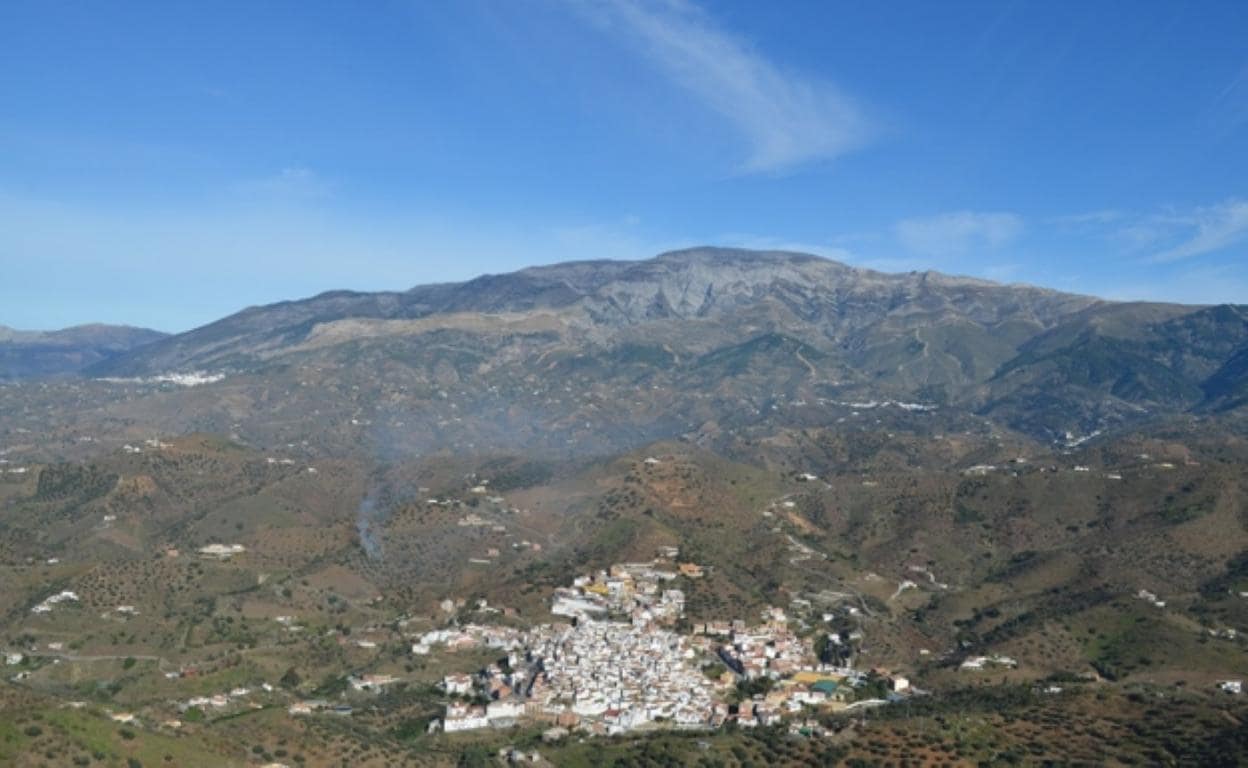Arenas: sand deposited on a dry riverbed
ARENAS ·
The name is thought to come from the deposits left by the Seco river as it runs through the Axarquía village on its way down to Vélez-Málaga and the seaeUGENIO cABEZAS
Friday, 17 February 2023
Nestled in the hills in the heart of the Axarquía, the village of Arenas is home to around 1,200 people, according to official statistics. It also boasts one of the largest almond crops in Malaga province and is just ten kilometres from Vélez-Málaga.
Like the other villages in the Axarquía, Arenas retains its Islamic roots and the remains of the Bentomiz fortress is one of the important reminders of this past, along with the vineyards and olive trees which are still a prominent feature of both its landscape and economy.
However, the name Arenas, meaning 'sands' in English, is likely to come from the fact that the Río Seco (whose name means dry river) deposits sand on its banks as it runs through the village according to Valentín Fernández, who has a PhD in History and teaches at the Reyes Católicos secondary school in Vélez-Málaga.
"It is a river that, as a general rule, runs dry, without water, for most of the year. It is only during prolonged rainfall that the upstream gullies channel their runoff into the riverbed," says the local historian.
In 2016 Fernández, together with fellow researcher, Pablo Rojo, located the remains of a farmstead belonging to Arenas and Corumbela El Viejo (the old); two settlements that date from the 10th and 11th centuries and that were abandoned after the Reconquest in the late 15th century.
As well as the discovery of the farmstead, Fernández, along with Purificación Ruiz - a retired archivist from Vélez-Málaga - have transcribed the 'Libro de Apeos y Repartimiento de Arenas 1572' (book of surveys and distribution of Arenas), which has shed light on some of the origins of the village and its name.
Arabic origins
The small hamlet of Daimalos, whose name has Arabic origins, belongs to Arenas. According to Fernández, Daimalos comes from the word 'Daymalus', although it has also been found in the form 'Daymas'.
"According to the book this name seems to come from the Arabic 'Daymus', which means cistern or vaulted water deposit, referring to the hamlet's main fountain, known today as the Fuente del Amor" (fountain of love), explains Fernández.
In his opinion, the name Daimalos "could well refer to the small 'Daymas', with the addition of the Latin suffix 'ilum', meaning small".
Fernández goes on to explain, "This theory is corroborated because together with Arenas and Corumbela, I also discovered the location of the farmstead of Daimalos el Viejo in 2016."
He believes that this farm "could well be the original Daimalos, 'Daymas', and the current Daimalos; the small Daimalos ('Daymalus')", concludes the history teacher, referring to his theory about the "small" suffix.
